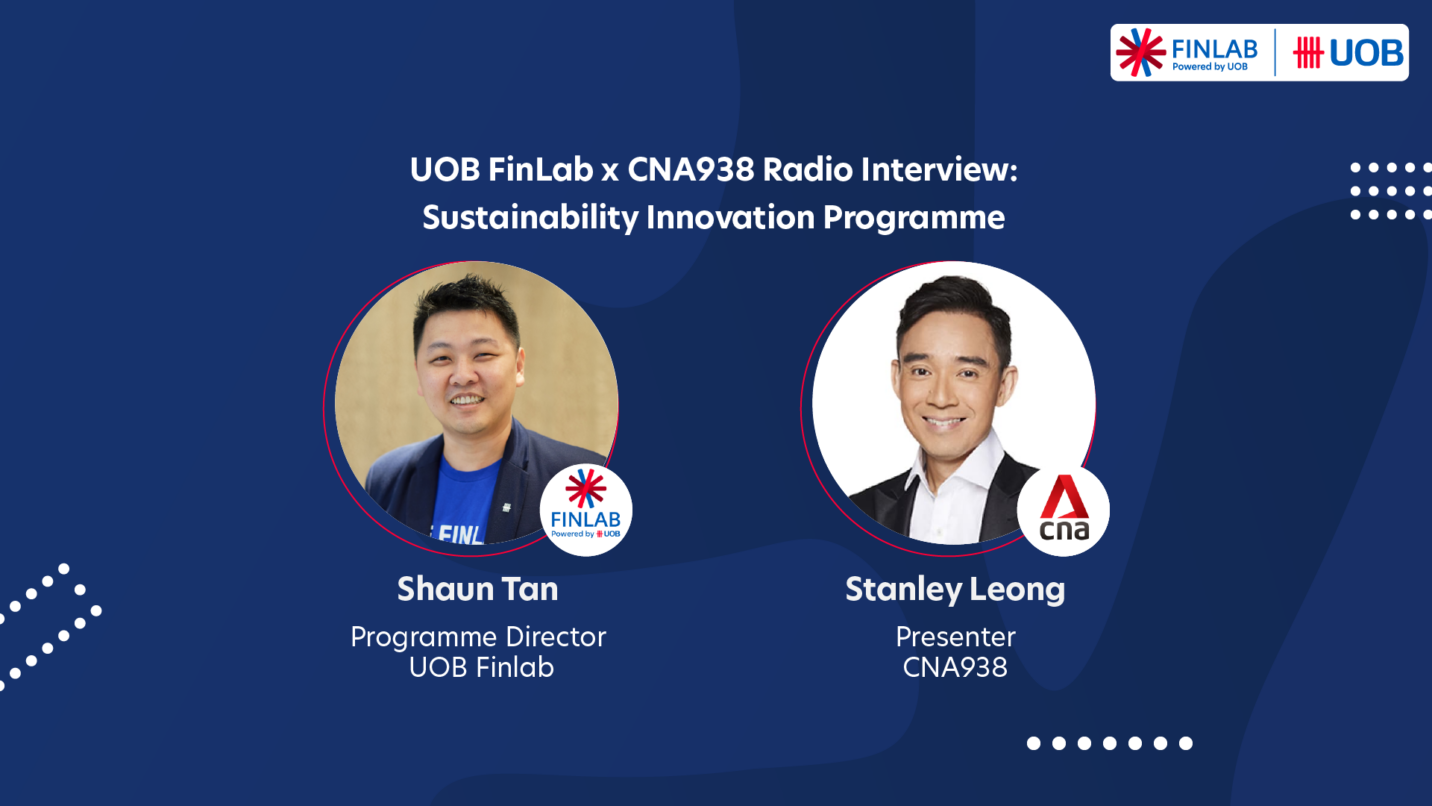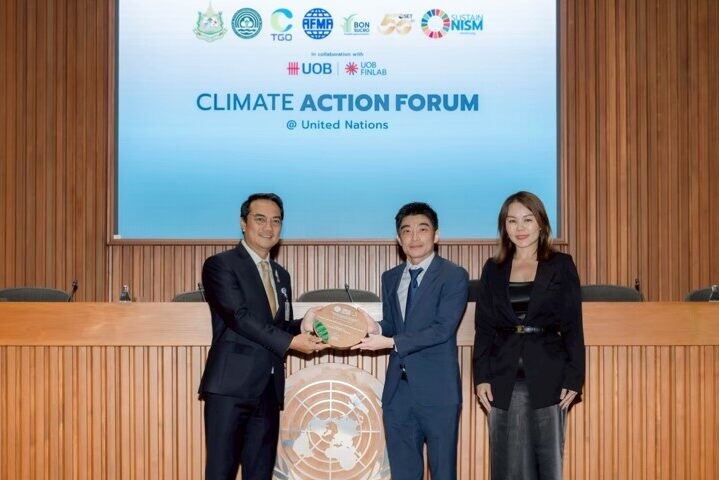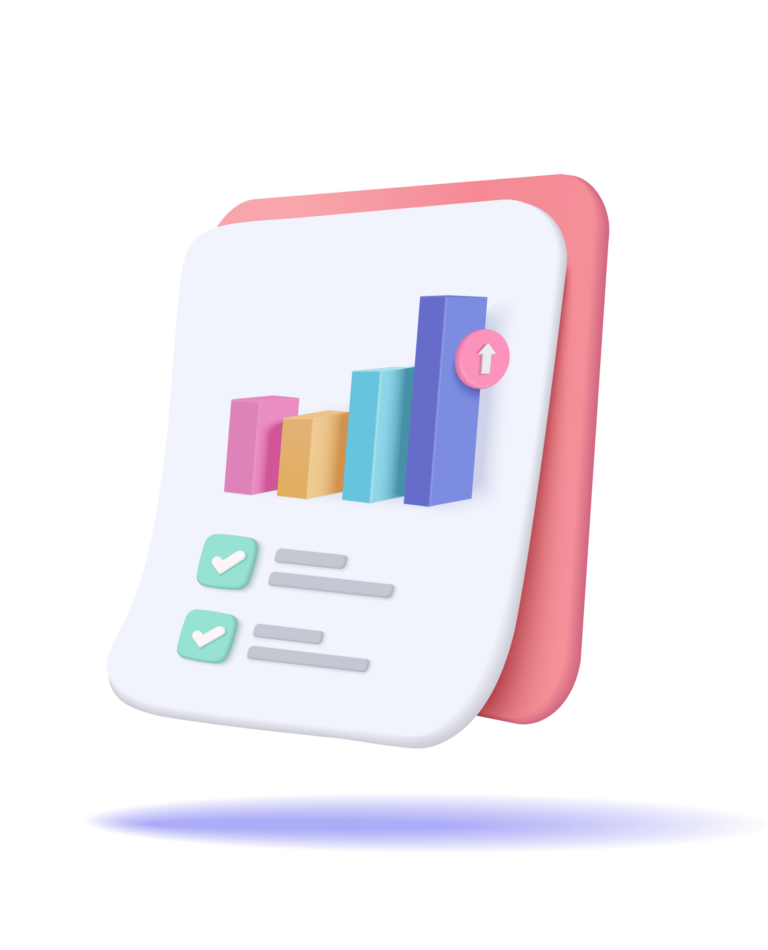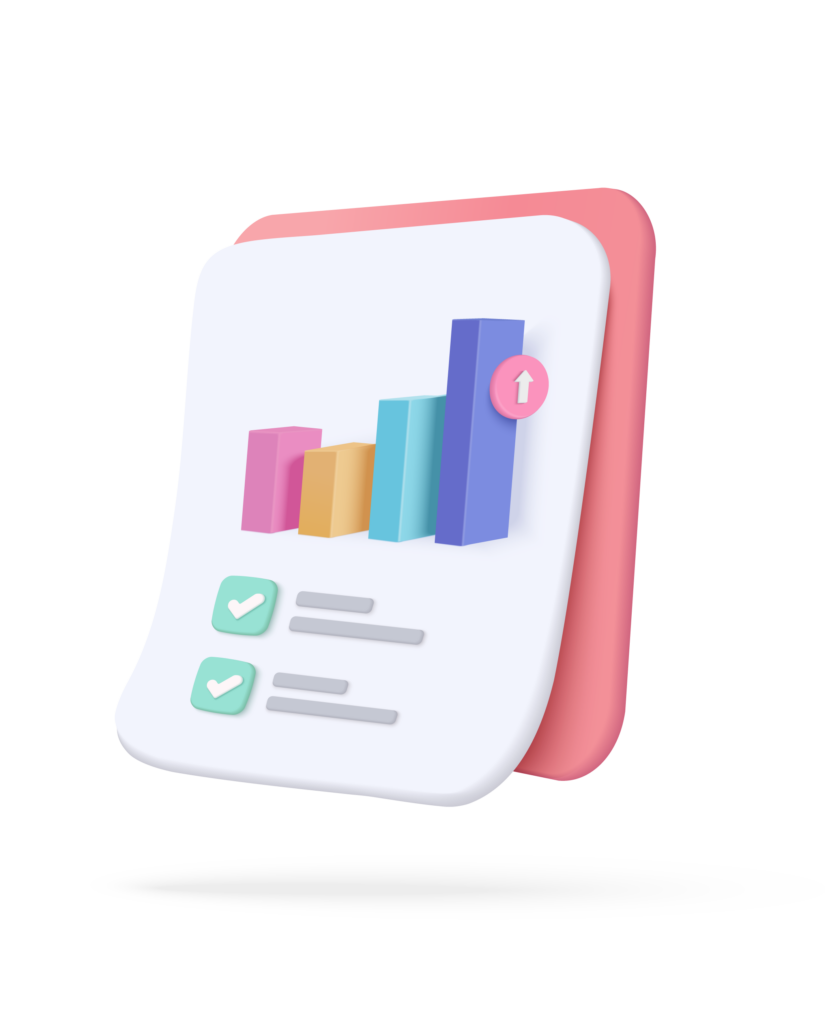
Upskilling: A Key Strategy to Futureproof SMEs in a Digital and Sustainable Economy
Upskilling is the key for SMEs to thrive in a digital and sustainable economy—and UOB FinLab is here to make it happen.

The FinLab’s Sustainability Innovation Programme (SIP) is a 2-week programme to help SMEs transform their companies into sustainable and green businesses. It provides deep insights across a variety of sustainability topics such as energy efficiency, sustainable finance, renewable energy certificates (RECs), sustainable packaging, and carbon management and ESG reporting.
In this interview with Stanley Leong from CNA938 Money Minds, Shaun Tan, Programme Director at UOB FinLab speaks about why ESG issues are important to SMEs, UOB’s sustainability framework, and the challenges that SMEs face when implementing sustainability measures.
What are the real far-reaching benefits for SMEs engaged in ESG issues?
What are the hindrances that are getting in the way of SMEs executing their sustainability initiatives?
At UOB, we did a UOB SME Outlook Study 2022, and the major barriers to implement sustainability practices are due to insufficient knowledge which makes up to 43%, inadequate non-financial support 39%, possible short-term impact on revenue, which makes up to 37% as well as concern with balancing new initiative with an increase in cost for the end customer which is 36%.
Stanley Leong: Thank you for joining me on Money Mind. Now let me read you an excerpt of a recent article by the World Economic Forum.
It says that small and medium-sized enterprises or SMEs are a force to be reckoned with. Now they make up 90% of businesses globally, create two out of every three jobs worldwide, support the livelihoods of over two billion people and are indispensable to the smooth functioning of global supply chains.
It went on to say that despite the enormous impact, many are not yet fully engaged on Environmental, Social and Governance issues or ESG issues. Now there are real challenges as to why many SMEs aren’t on board with ESG issues but when they are, the opportunities and doors it can open to them can be tremendous.
So on Money Mind now, we examine what seems to be in the way for SMEs and what tools might be helpful for them to kickstart their ESG initiatives.
I speak now with Shaun Tan, Programme Director of the FinLab. They are a Singapore-based innovation accelerator specialising in SME sustainability and digitalisation. Shaun, welcome back to CNA938. Hope you have been well.
Shaun Tan: Hi Stanley, thanks for having me.
Stanley Leong: Pleasure. Now, why does it matter if SMEs care or not about ESG issues? I mean, some may think that small businesses are like small fry, right? You should really focus on getting the big boys on board ESG. So, what sort of real far-reaching benefits can it bring to SMEs if they were engaged in ESG issues?
Shaun Tan: So, SMEs play a massive role in our economy. They form 99% of all establishments in Singapore and ASEAN. Each individual company’s commitment to sustainability adds up and will make a difference on whether the country meets the carbon neutrality goals and net-zero targets.
So now caring for ESG is not a ‘good to have’, but a ‘need to have’. Today, as being sustainable, allows the company to gain access to new markets, remain competitive and increase their profit margin. SME pursuing growth will also need to be aligned with increasingly specific regulatory standards as well as the client’s expectation.
Yeah, so we also cannot ignore the customer-shifting demands, right? The end user, the end consumer are more involved and keen on socially and environmentally responsible offerings.
Stanley Leong: And yeah, thank you for bringing that up because you talk about customers, you talk about your other business partners as well because SMEs don’t just function and operate in isolation, they have a lot of stakeholders, they work with other big players and if they are on board and the small SME isn’t, then they might actually lose out on a big contract for instance, right?
Shaun Tan: Yes, in fact, we have heard a few examples of SMEs being impacted in their supply chain, procurement for contracts because the bigger boys, they want to have a sense of whether the providers are being agreed or not.
Stanley Leong: Alright, now when we refer to ESG Shaun, how broad a range of issues do they span?
Shaun Tan: With sustainability today extending to just beyond caring for the environment, they also take into account the social welfare and good governance, all needed for the economic growth.
So at UOB, we have four pillars of sustainability strategy that arises from our fundamental strength and are rooted in our values. And these are extremely relevant to the SMEs as well.
So the first is to drive growth sustainably. So for SME, they also need to contribute economically to the progress of their SMEs community, which is a part of the supply chain.
Second, is to keep customer at the centre. So the SME also have clients and they also need to protect the data and privacy through the secure system and practices.
Third, is to develop the professionals of principle. So for the SME, they also need to provide, to ensure that the employee engagement and satisfaction through work-life harmony and also to encourage volunteerism and advocacy for the social and environmental causes so it can be related, so they can relate it to the business as well.
Last but not least, is to uphold the corporate responsibility. We always feel that the SME can incorporate sustainability principle into their procurement practices as well.
Stanley Leong: Alright, so driving growth sustainably, keeping customers at the centre, upholding corporate responsibility as you said as the fourth pillar. Remind us again the third pillar which is to develop the professional?
Shaun Tan: Professionals of principle.
Stanley Leong: Okay, all right, got it. Now according also to a study by a fellow Singapore bank DBS, 83% of small companies, 92% of mid-sized or medium-sized companies have an ESG strategy in place or are creating one. But here’s the statistic that’s of greater concern only 37% of these businesses, Shaun, they have a clear roadmap on how to achieve their goal so okay they have some idea but how they’re going to achieve it that’s another question altogether it seems. It appears that it’s easy to have a plan but going about executing it, different ballgame. What are, you think, the hindrances that are getting in the way of SMEs executing them?
Shaun Tan: So at UOB, we also did a UOB SME Outlook Study 2022, and the major barriers to implement sustainability practices are due to insufficient knowledge which makes up to 43%, inadequate non-financial support 39%, possible short-term impact on revenue, which makes up to 37% as well as concern with balancing new initiative with an increase in cost for the end customer which is 36%.
So the current economic climate also poses challenges to the businesses in expanding their ESG strategy such as high business cost, inflation, rising global interest rates as well as the GST hype and the supply chain disruption.
Stanley Leong: Alright, thanks for mentioning about the inadequate financial support that seems to be somewhat of a concern for SMEs. Remind us why there is this need for financial support. Should SMEs want to be more engaged in rolling out ESG initiatives?
Shaun Tan: SMEs are always very mindful of the cost. So the initial cost such as investment in new talent, training, technology, they are the most significant challenges for SMEs in ASEAN which makes up to 60%. This is also followed by a 51% indicating lack of dedicated resources and time and a lack of expertise and know-how. That’s where the bank’s role can come in in terms of the financial support as well as the government support in the funding.
Stanley Leong: And like you also said, the need to balance, to engage in these initiatives and also bearing in mind that there is a rise in cost and that cost could be a factor that SMEs really are rather worried about. Now propose to us then how SMEs can either get started if they haven’t already or at least stay on course to achieving their ESG goals and how to avoid perhaps common pitfalls along the way.
Shaun Tan: So through the recently concluded FinLab Sustainability Innovation Programme, we found that SMEs and start-up sustainability awareness and proficiency has improved over the years. However, they still need guidance on actioning and implementing the next steps through introducing solutions and practices.
So at the FinLab, we focus on the following three pillars.
First is to ‘Educate’. So we wanted to share with the SMEs on the key trends, solutions, as well as insights on what it takes to build a sustainable future.
Second is on ‘Evaluate’, and this is actually our key element of our programme. So we feature a UOB Sustainability Compass. So this is a simple online tool that generate a customised report based on the SME sector and sustainability maturity stage.
This report will actually provide the SME with clear and actionable next steps to chart their sustainability journey and build a more resilient business.
The third is ‘Execute’. So we wanted the SME to know what are the available sustainable solutions in the market as well as plan for the future growth leveraging on this clear sustainable action.
Stanley Leong: The fact that you mentioned there is such a thing as SME sector. Yes, SMEs come from different sectors as well. How would it be then assessed, evaluated against which sector one SME comes from or belongs to?
Shaun Tan: So the various sector comes from such as retail, wholesale. So for the evaluate part where the UOB Sustainability Compass, we worked with PWC to come together for this online questionnaire. So it cut across the various sectors that SME come from. Of course, various sectors, they have different needs and opportunities in the sustainability journey.
Stanley Leong: Alright. Let’s reintroduce you, Shaun. Shaun Tan is speaking with me here on Money Mind today. He is the Programme Director of the FinLab and they are an innovation accelerator by UOB that specialises in SME sustainability and digitalisation.
Alright, so let’s talk about the SME community. What sort of tools or programs are they able to benefit from that’s being offered by the FinLab, Shaun?
Shaun Tan: The FinLab launched our Sustainability Innovation Programme (SIP) in 2021 to provide local and regional SMEs with the knowledge and resources to be more energy efficient, improve carbon management and reporting as well as zero waste supply chain planning.
So this programme is a two-week program that connects the SME with knowledge and solution providers to offer insights across a variety of sustainability topics such as energy efficiency, sustainable finance, renewable energy certificates, sustainable packaging and carbon management and ESG reporting.
So far, we have more than 800 SMEs that have participated in our SIP since 2021 and have undergone workshops, training supported by knowledge and tech solution partners such as tertiary education institutes as well as companies in the private sector. We have matched over more than 250 SMEs to Green Tech Solutions to transform their sustainability efforts.
Stanley Leong: Right, right. Wow, this is really powerful there for SMEs to really get a leg up in ESG. Now there’s also a plethora of ESG issues to be tackled. Where do we start, right? Any advice for SMEs tuning in, SME owners tuning in as to which ones they should tackle first or invest in or adopt before everything else?
Shaun Tan: So SMEs, like I mentioned earlier, they come from a very wide domain of sectors. SME should first evaluate their own business, their respective business, look at their carbon footprint and identify their biggest carbon emitters.
That’s where tools like the UOB Sustainability Compass comes in handy, where we can help the businesses to evaluate their sustainability journey and what other opportunities ahead.
Stanley Leong: Alright, now let’s talk about SMEs that have already gone down this route and they are inspiring real-life cases that we could maybe take a leaf out of in terms of the journey that they have run. So let’s talk about some of these SMEs, any inspiring stories to share in terms of how they have set their ESG efforts in motion?
Shaun Tan: Yes, in fact, we have one participant from our 2021 cohort called Chasen Holdings. They operate a large fleet of trucks. So, through our programme, we have provided them the business guidance and understanding on how they can grow sustainably. So the representative from their company also shared what they learned with the management teams as well as other colleagues.
So Chasen Holdings Limited has invested in energy-efficient technology across its business as well as the subsidiary, supported by government incentives. This includes switching to a 100% renewable energy powered supply for two of its subsidiaries using lithium battery operated forklifts where it’s needed for all the project as well as retrofitting their warehouses with energy efficient lightings. They also procured their first electric commercial vehicle, progressively replacing their old diesel trucks.
Stanley Leong: All right, wow. Fresh air over at their premises as well and also in their warehouses. All right, so that could be something that our listeners can bear in mind, especially if you are an owner of an SME or just a, you know, leading one, think about these things, the ESG efforts that you can have going in your organisation.
We have been speaking with Shaun Tan. He is the Program Director of the FinLab and Innovation Accelerator by UOB. And Shaun did mention about the Sustainability Compass. You can find out more about their programmes and tools and events at their website, thefinlab.com.
That’s thefinlab.com. Shaun, thank you so much for joining us today on Money Mind. Appreciate all your advice for SMEs tuning in.
Shaun Tan: Thank you Stanley for having me.
Stanley Leong: Our pleasure.


Upskilling is the key for SMEs to thrive in a digital and sustainable economy—and UOB FinLab is here to make it happen.

UOB FinLab in Thailand has been conferred the prestigous Climate Action Award 2025 for its efforts in combating climate change

Learn about the key sustainability trends UOB FinLab is focusing on for 2025.

Designed for business owners to enhance their digital capabilities through practical learning, this programme takes businesses to the next level.
Designed for business owners to enhance their digital capabilities through practical learning, this programme takes businesses to the next level.


Bridge ideas and innovation, subscribe to the FinLab Connect now!